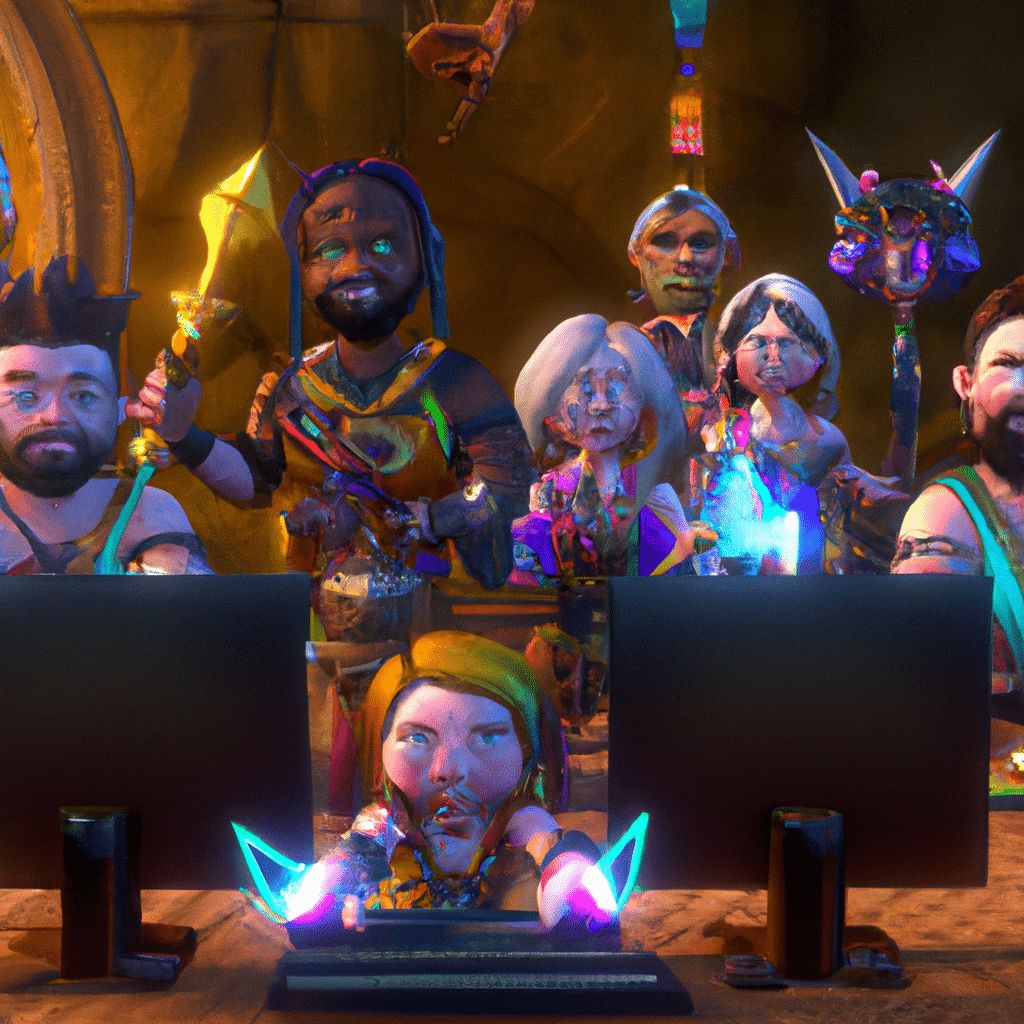In today’s globalized world, it’s essential to learn about different cultures and traditions to be able to work, collaborate and communicate with people from diverse backgrounds. As technology progresses, video games have become an excellent tool for learning new things, including culture and traditions. In this article, we’ll explore some PC games that can help you learn about different cultures and traditions in a fun and interactive way.
1. Assassin’s Creed Origins
Assassin’s Creed Origins is an action-adventure game that takes place in ancient Egypt. Players control Bayek, a Medjay who seeks revenge against those who killed his son. The game’s story is set in a historically accurate ancient Egypt, and players can explore the game’s open-world environment to learn about the Egyptian culture and traditions.
Players can visit famous landmarks like the Great Pyramids of Giza, the Sphinx, and the Temple of Karnak. They can also meet historical figures like Cleopatra, Julius Caesar, and Ptolemy XIII. The game is full of historical details, and players can learn about Egyptian mythology, religion, and daily life through the game’s side quests and missions.
2. Civilization VI
Civilization VI is a turn-based strategy game that allows players to build and expand their own civilization. Players can choose from different civilizations, including African, American, Asian, and European, each with its unique culture and traditions.
Players can learn about each civilization’s history, art, architecture, music, and literature by exploring the game’s technology tree, which unlocks new advancements as players progress through the game. They can also interact with other civilizations, trade with them, and form diplomatic relationships, which can help them learn more about their cultures and traditions.
3. Never Alone
Never Alone is a puzzle-platformer game that follows the story of a young Inupiaq girl named Nuna and her Arctic fox companion as they embark on a quest to save her village from an eternal blizzard. The game was developed in collaboration with the Alaska Native community, and it aims to teach players about the Inupiaq culture and traditions.
Players can learn about Inupiaq stories, beliefs, and customs by collecting cultural insights, which are short videos that explain different aspects of Inupiaq culture. They can also unlock cultural artifacts, which provide more in-depth information about the Inupiaq people’s history, art, and way of life.
4. The Elder Scrolls V: Skyrim
The Elder Scrolls V: Skyrim is an open-world action role-playing game that takes place in a fictional world inspired by Norse mythology. Players can explore the game’s vast open world, visit different cities, and interact with different races, including humans, elves, dwarves, and orcs, each with its unique culture and traditions.
Players can learn about the game’s lore by reading books, talking to NPCs, and completing quests. They can also learn about different aspects of Norse mythology, including gods, monsters, and legends, by exploring the game’s dungeons and ruins.
5. Okami HD
Okami HD is an action-adventure game that takes place in a fictionalized version of ancient Japan. Players control Amaterasu, a sun goddess who takes the form of a white wolf, as she fights demons and restores life to the game’s world. The game’s art style is inspired by traditional Japanese ink paintings, and the game’s story and characters are deeply rooted in Japanese culture and mythology.
Players can learn about Japanese folklore, religion, and customs by exploring the game’s world, talking to NPCs, and completing side quests. They can also collect different brush techniques, which allow them to interact with the game’s environment and solve puzzles in unique ways.
6. Valiant Hearts: The Great War
Valiant Hearts: The Great War is a puzzle-adventure game that takes place during World War I. Players control four different characters, each with their unique story, as they navigate through the game’s world and try to survive the horrors of war. The game’s story is inspired by real events and letters from soldiers who fought in the war.
Players can learn about the game’s historical setting, including the war’s causes, battles, and consequences, by reading letters and documents scattered throughout the game’s world. They can also learn about different cultures and traditions by interacting with soldiers from different countries and backgrounds.
Conclusion
PC games can be an excellent tool for learning about different cultures and traditions. By immersing themselves in historically accurate or fictionalized worlds, players can learn about different aspects of culture and tradition, including art, architecture, music, religion, mythology, and daily life. By interacting with NPCs, completing quests, and collecting artifacts, players can deepen their understanding of different cultures and traditions. The games listed in this article are just a few examples of how video games can be used for educational purposes.













